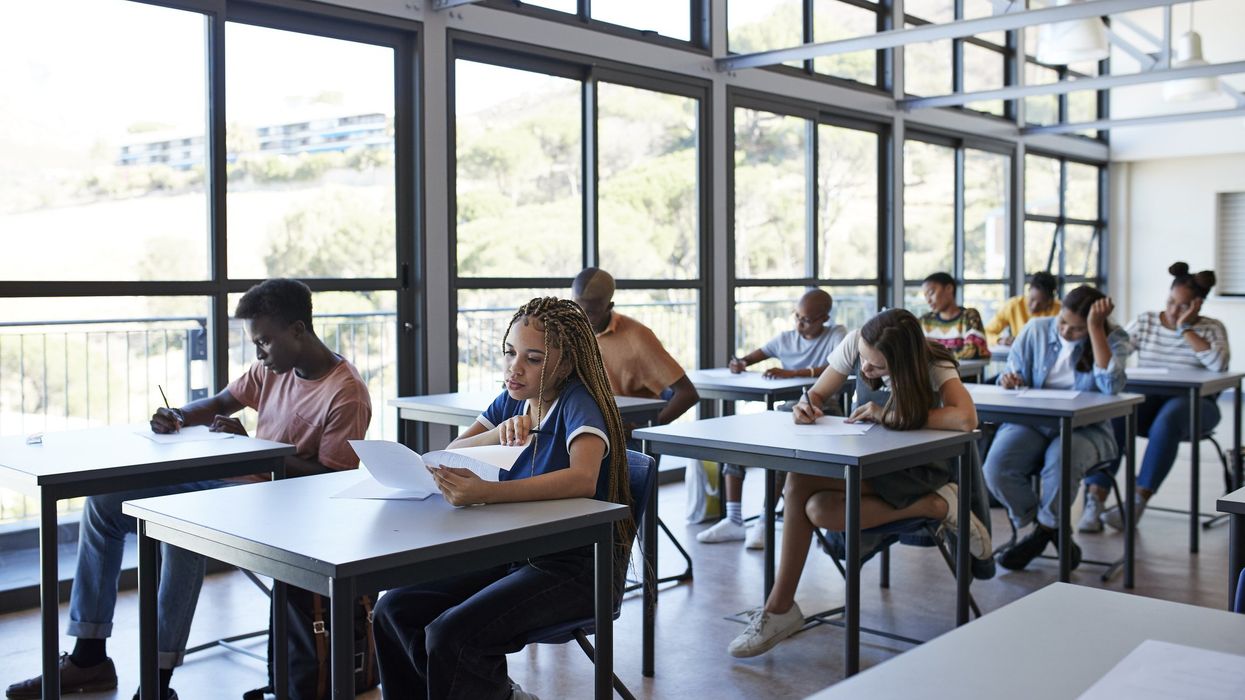In many classrooms across the country, civic education often looks like giving lectures on the U.S. Constitution.
But Generation Citizen is looking to change that.
Founded in 2010 by Scott Warren, then a student at Brown University, he had two observations: civic education varies between higher and lower-income districts, and traditional civics courses often do not capture young people’s interest. In its 15 years, Generation Citizen has reached more than a quarter-million students in 11 states in urban and rural school districts. Chief Executive Officer Elizabeth Clay Roy said the program’s emphasis on real-world connections motivates students to develop civic skills that they will use for the rest of their lives.
“Our approach is community-based civics,” Clay Roy said. “We invite young people to not just learn civics from a textbook but to actually get involved with student-led projects where they identify the issues they care about.”
Clay Roy said Generation Citizen’s model culminates in a “Civic Capstone”—a public presentation where students share the projects they developed. The projects vary widely, depending on the geography, local culture, and change that the student cares about making.
Clay Roy also said the key difference in Generation Citizen is that they focus on local and state issues rather than federal-level civics. She added that this is so young people know they have a voice within their community.
In New York City, the High School for Health Professions and Human Services uses the Generation Citizen model for its ninth-grade students. Assistant Principal Jeremy Kaplan said they chose ninth grade for students to work on a project, as they are not tested on the Regents Exam until the following year.
The high school is located one block away from a hospital, and one civic engagement project, related to students’ interests, was to serve people on their block who are experiencing homelessness and mental illness. Kaplan said it was a chance for students to learn about local issues impacting them on a daily basis.
Kaplan added that students researched how others at their school thought about the people on the block through interviewing others during class time.
“Being able to talk to strangers, interview people, are really essential life skills that are often not developed in traditional school work,” Kaplan said.
Kaplan said that with these students, who are mostly interested in going into the health profession, they hope to teach them that there are “a million ways of engaging in democracy that is not just about formal government.”
But Clay Roy said urban and rural school districts often differ on what projects they work on. In New York City, Clay Roy said multiple classes tackled the issue of “subway surfing”—a dangerous trend where young people ride on top of trains. She added that students worked with city agencies and community organizations to promote safer transportation habits.
“This is an issue that would never be something that would come up in a rural Oklahoma town,” Clay Roy said.
While in Guymon, located in the panhandle of Oklahoma, a group of students successfully advocated for a fence around their school’s football toss area to keep balls from rolling into a nearby highway.
Looking forward, Clay Roy said Generation Citizen’s goal is for every student to do some type of project that is based on civics—by making it as common as science labs. She added that Massachusetts has made experimental civics education mandatory in public schools, per a state law.
Clay Roy added that, according to the America’s Promise Alliance in their State of Young People 2024 Research Report, 91 percent of respondents believe that everyone should have access to civic education. But just 43 percent of young people feel that their civic education experiences have prepared them to participate civically.
“There’s a demand from parents, there’s a demand from students,” Clay Roy said.
Maggie Rhoads is a student journalist attending George Washington University School of Media and Public Affairs. At The Fulcrum, she covers how legislation and policy are impacting communities.
Maggie Rhoads was a cohort member in Common Ground USA's Journalism program, where Hugo Balta served as an instructor. Balta is the executive editor of the Fulcrum, and the publisher of the Latino News Network.
The Fulcrum is committed to nurturing the next generation of journalists. Learn more by clicking HERE.




















